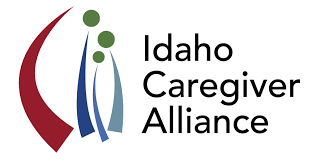
Protecting Seniors from Scammers
Imagine, you are sitting on the couch and an unknown number calls you. You answer the phone just to find that it is a robot call telling you that your vehicle warranty is about to expire and you need to speak with a customer service representative to prevent it from expiring. Most people would know that this is a scam and ask to be placed on the “do not call” list or hang up the phone. However, not everyone will understand it is a scam. Seniors are often the target of these kinds of scams. Why? Because seniors are often polite and trusting. They are financially stable, own a home, and may have good credit. Now you are wondering: how can I protect myself or my loved ones from scammers?
Here is a list of common scams that are affecting seniors and ways to prevent you and your loved ones from becoming subject to these scams.
Common Scams Affecting Seniors
The Grandparent Scam
The Grandparent Scam appeals to the heart of the senior. The scammer will call and pretend to be a relative, usually a child or grandchild, and say that they are in immediate financial need. It is common for them to avoid giving you a name and instead say something like “your favorite grandson” or “your youngest child” getting you to tell them the names of your family members. Then they claim to be that family member and ask you for money. Sometimes, in the form of gift cards. Before you give the scammer any money or financial information, tell them you will call back at another time. Then, call that person on a number you know belongs to them to verify if they actually need financial assistance.
Sweepstakes, Charity, or Lottery Scam
The old saying “nothing in life is free” explains how this scheme should be ineffective. You may receive an unsolicited call or email stating that you have won a sweepstakes prize or the lottery and can claim it after paying a fee. Make sure you know when you have entered to win any prize when that prize will be drawn, and what you could win from that sweepstakes or drawing.
Government Impersonation Scam
Many seniors depend on Social Security and Medicare as a way of life. It may come as a shock if they receive a call telling them that their Social Security or Medicare benefits are going to be suspended and they could be arrested if they don’t pay a fee to reinstate their benefits. The scammer might ask for identifying or financial information which they would use to take money from your accounts. Don’t give them any information. If your Social Security and Medicare benefits are expected to change, you would receive notification in the mail from these services.
Romance Scams
More often than before, people are using dating apps and websites to find romance or love. Romance scammers will create fake profiles that appeal to lonely seniors. It is common for these scammers to live outside of or on the opposite side of the country. They will gain the trust of a senior by telling them the things they want to hear, pulling on their heartstrings, and making them believe that the scammer loves them. Eventually, they begin to ask for money to pay for housing, food, and possibly visas and travel expenses to meet in person. Romance scams can linger for months to years before the individual realizes that they have been scammed.
Technology and Internet
Technology is continually evolving and may be challenging for seniors to navigate. As the senior is surfing the internet they may receive a pop-up window that says a virus has been detected on their computer and they need to pay a fee to protect their device. Once the fee has been paid the scammer will crash the computer system making it difficult to track them. Do not give them any financial information. Instead, call a computer company, like Geek Squad from Best Buy, and have them take a look at your computer. They will be able to remove any virus that could be causing harm and not destroy your computer.
How Can You Prevent Yourself from Being Subject to Scams?
Be prepared for those unsolicited phone calls and emails by following these simple guidelines:
Never give any of your personal or financial information over the phone or on the internet unless you initiated the interaction. This includes credit card, banking, Social Security, Medicare, or other personal information. Be wary of anyone selling you items that they claim to be covered by Medicare.
Be skeptical of all unsolicited offers. Don’t feel pressured to act right away. Do research the organization, the name of the person that called you, and even the phone number to see if anyone else has reported them as fraud.
Rehearse different scam scenarios. Take the time to go through different scam scenarios that you could face and come up with how you would respond to these situations. This could be a phrase that says “I never buy from (or give to) anyone who calls or visits me unannounced.” Or identifying who you will reach out to if you suspect something is a scam.
Looking for More Resources?
Here are some websites you can visit to find more information:

